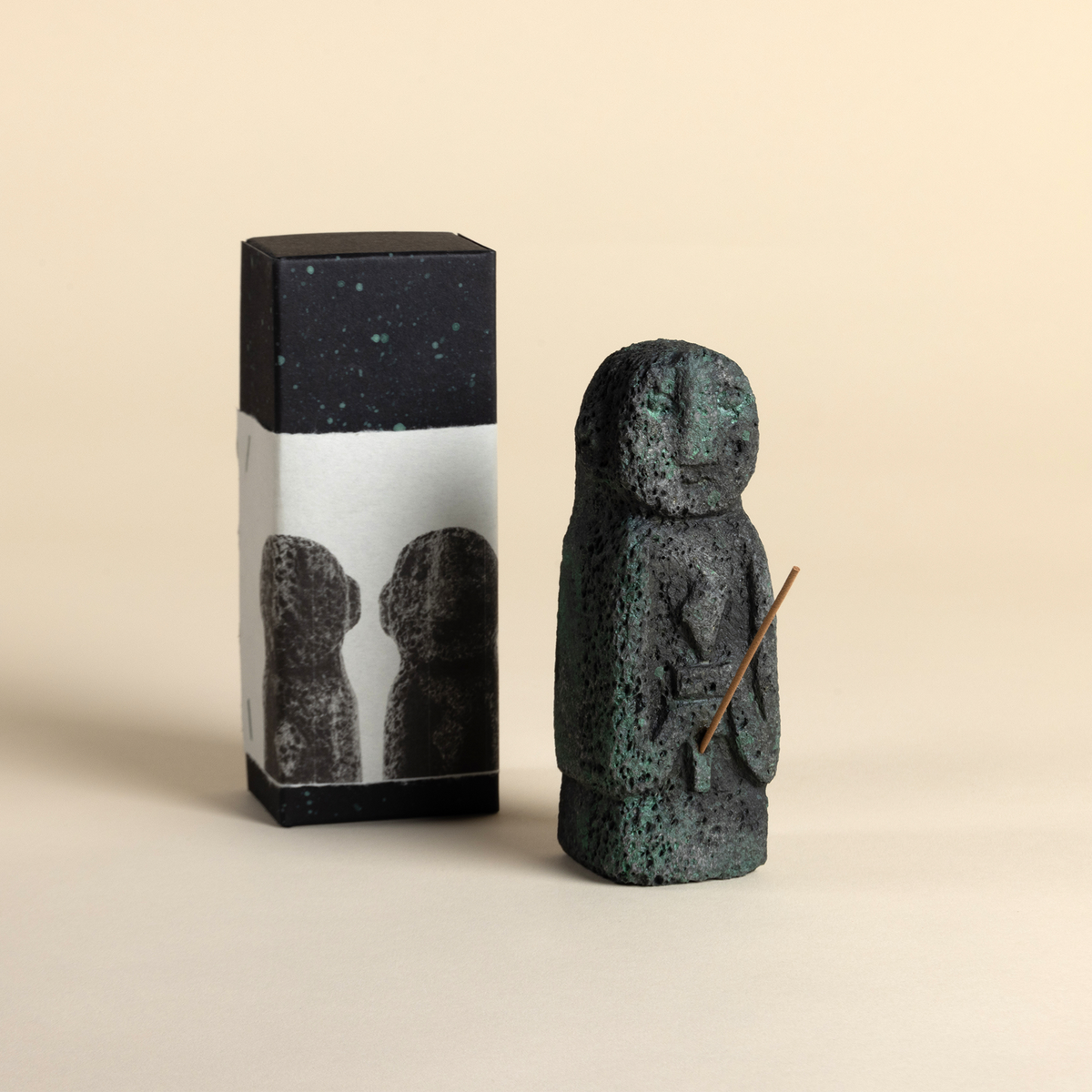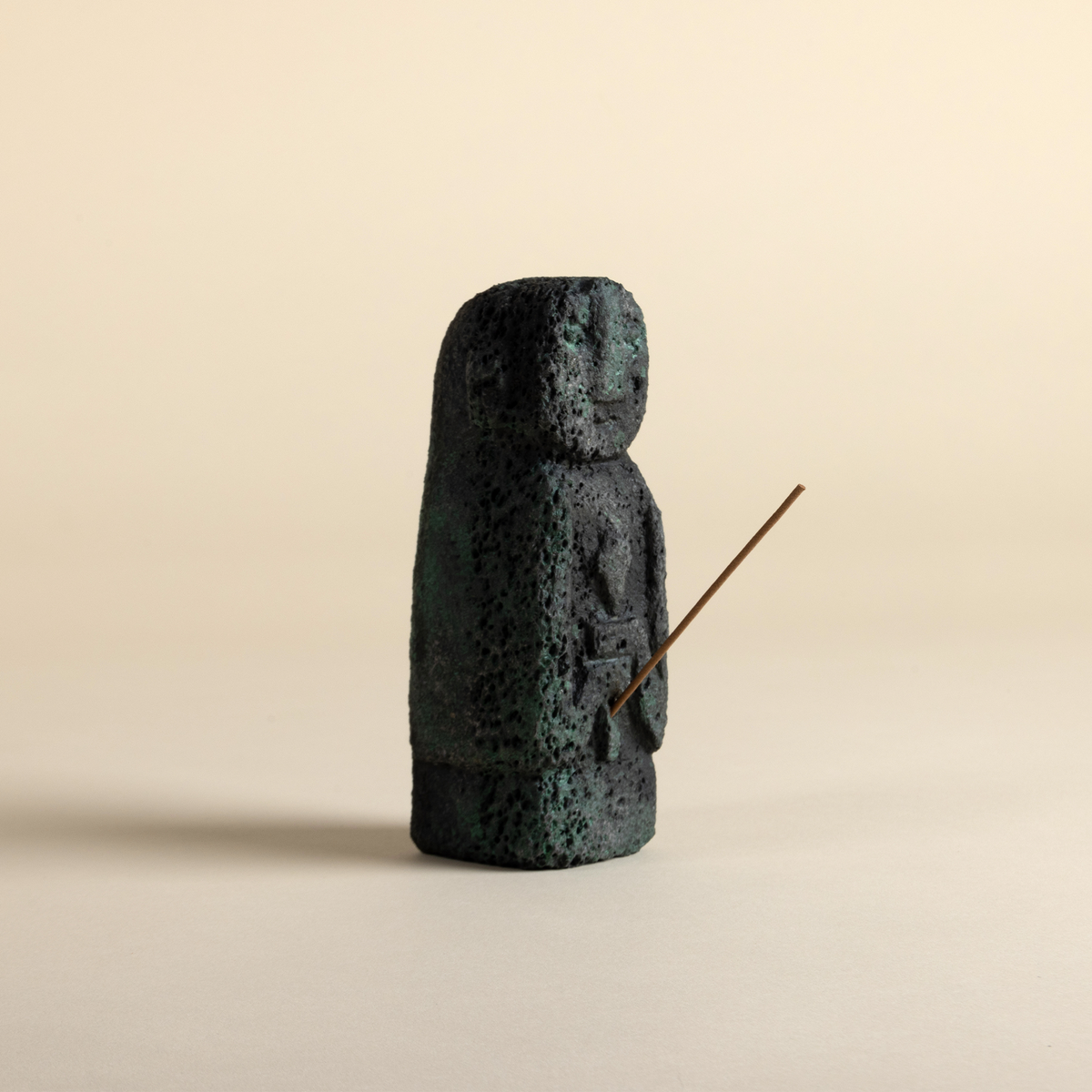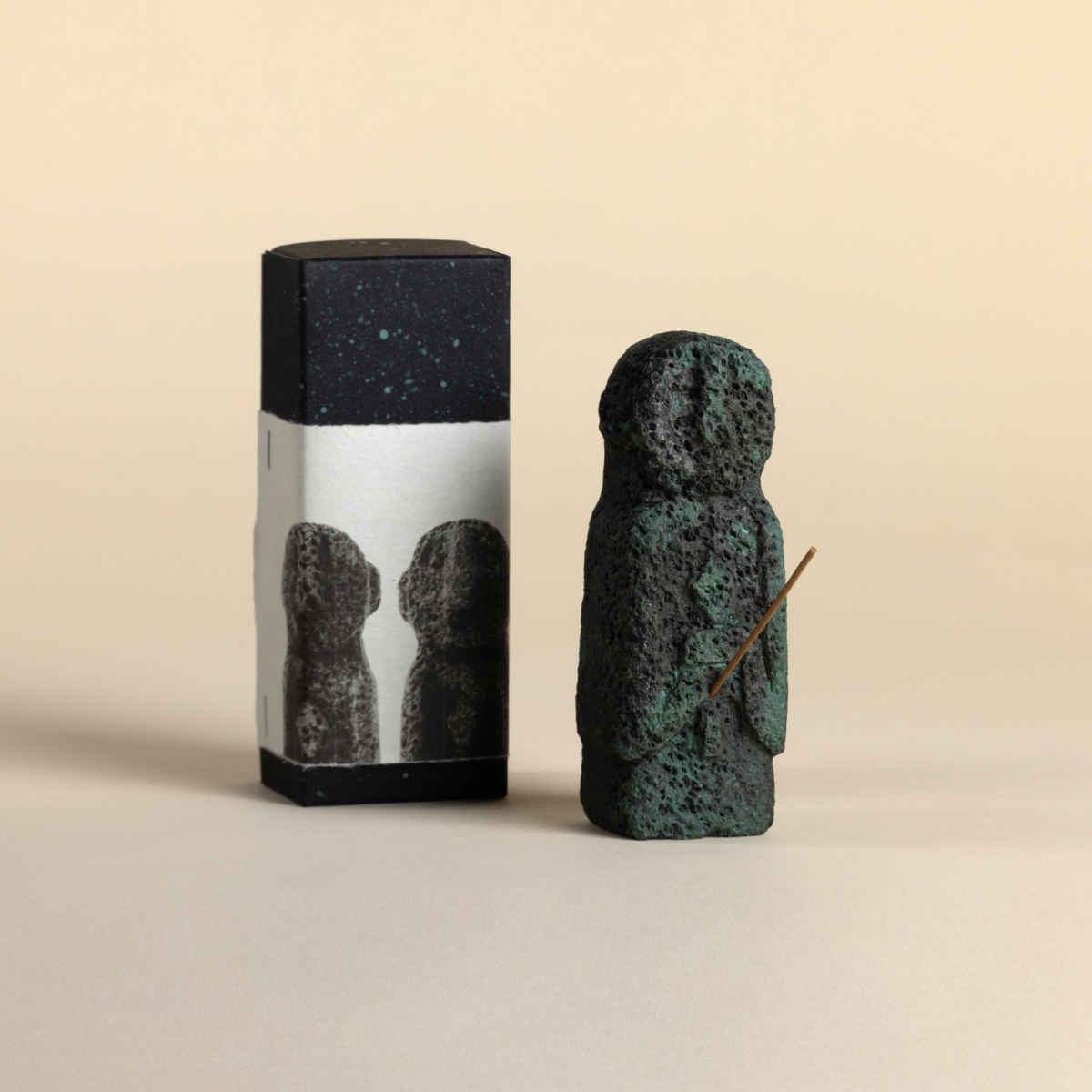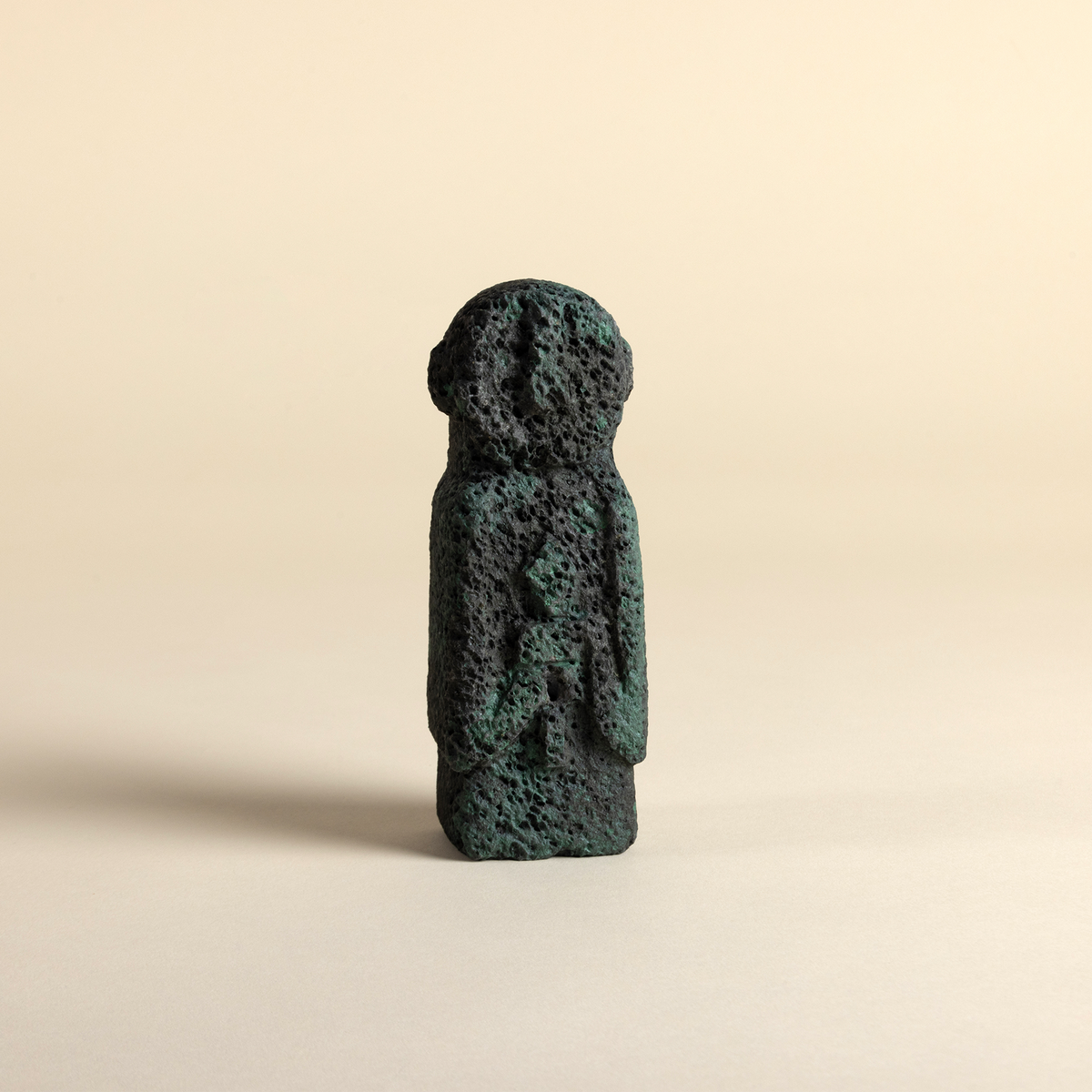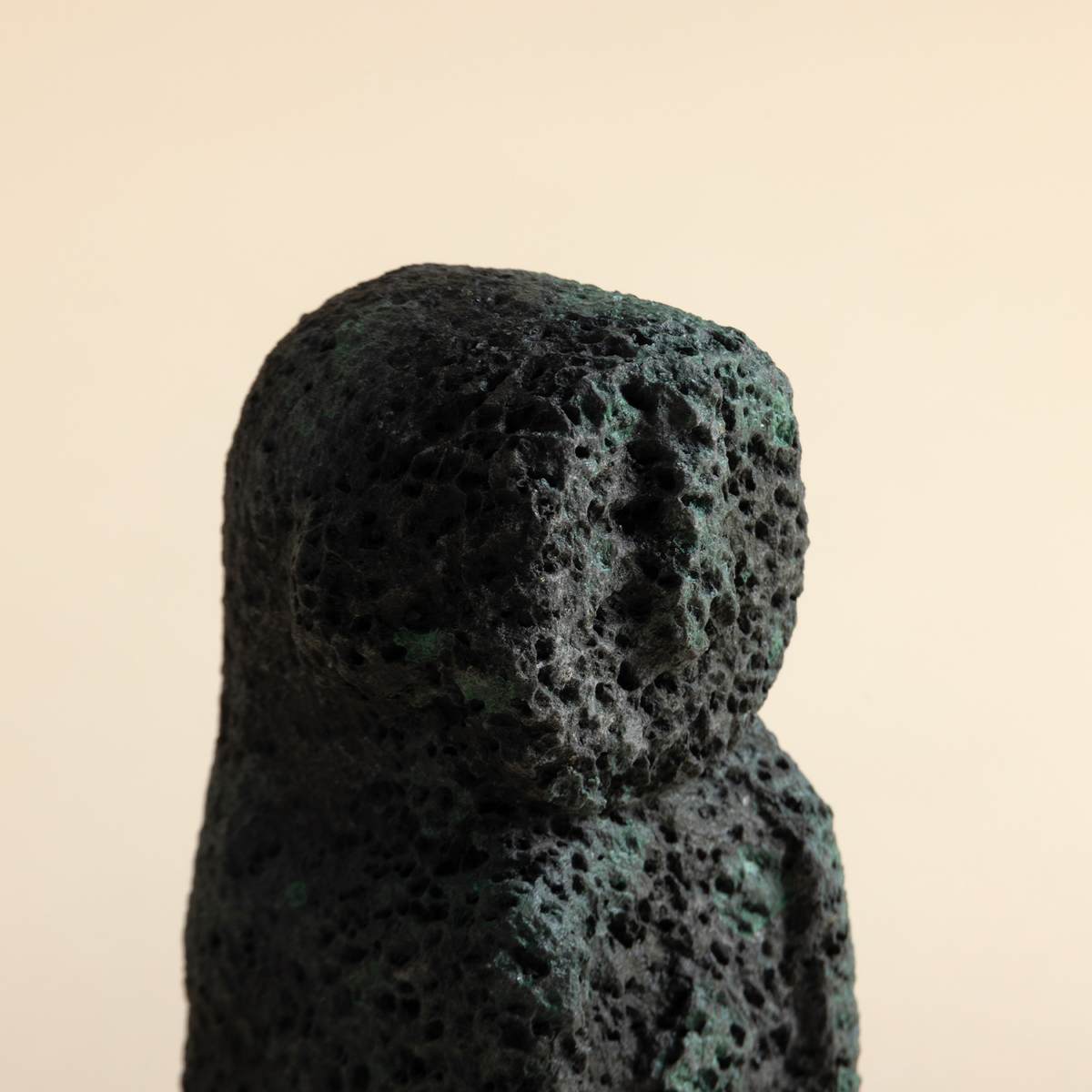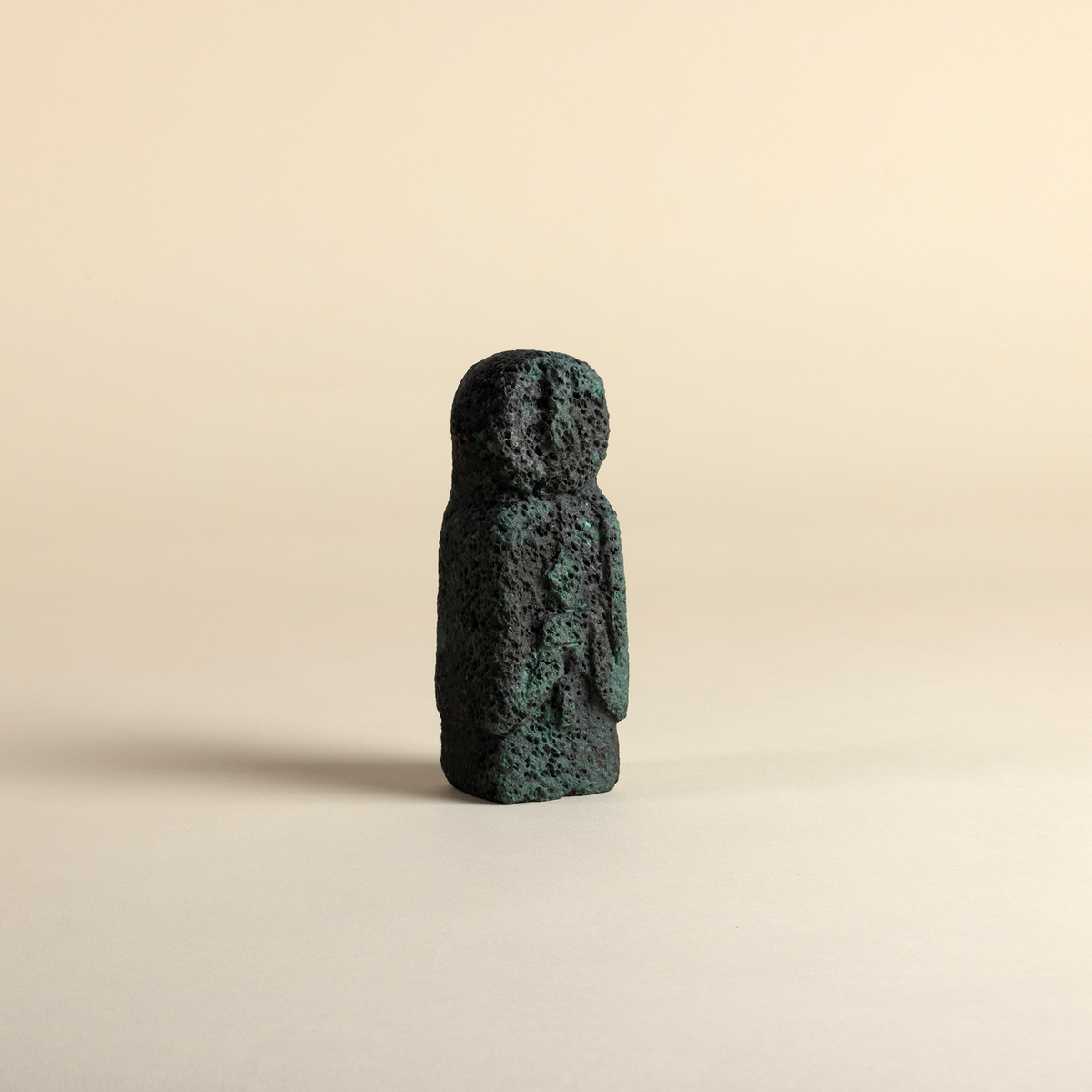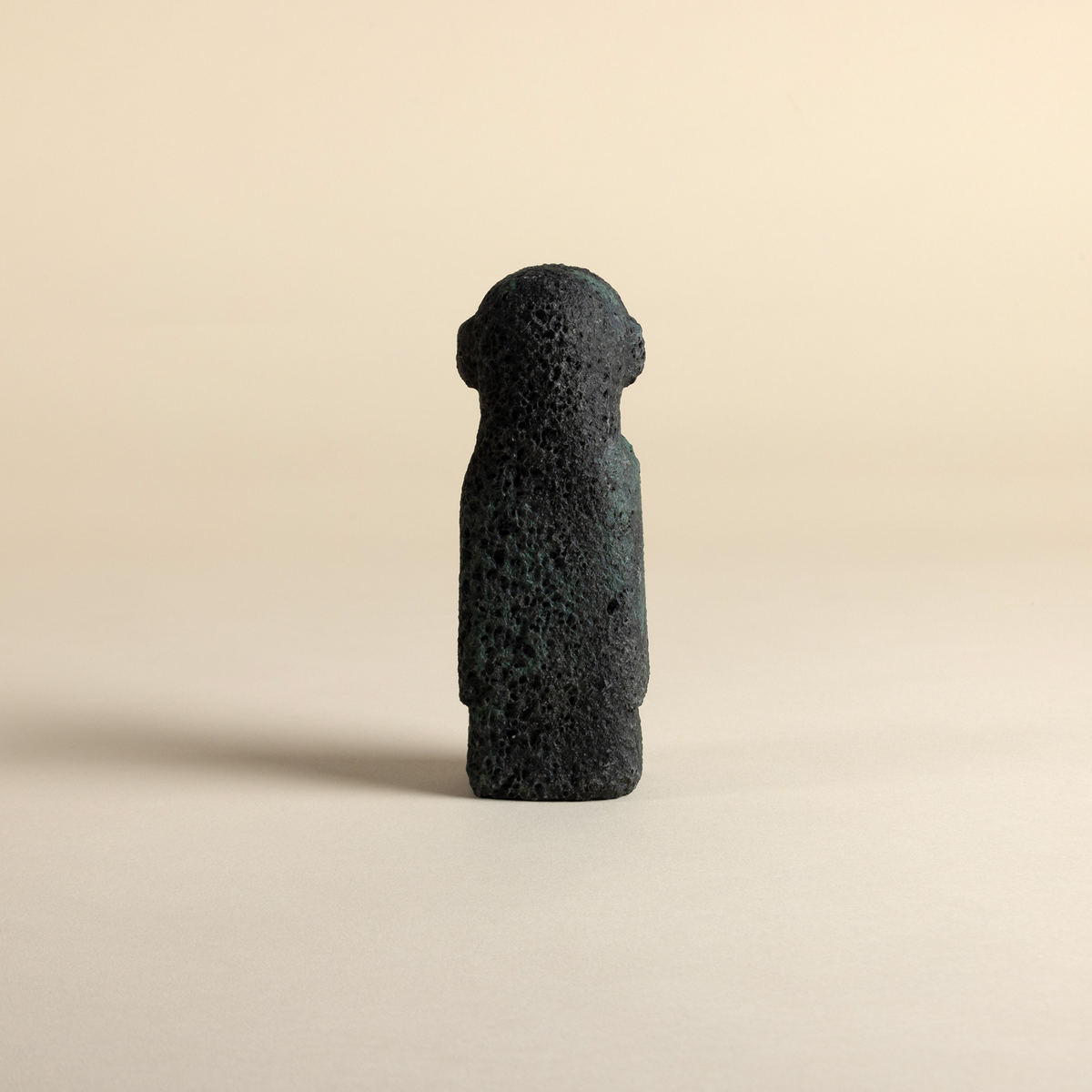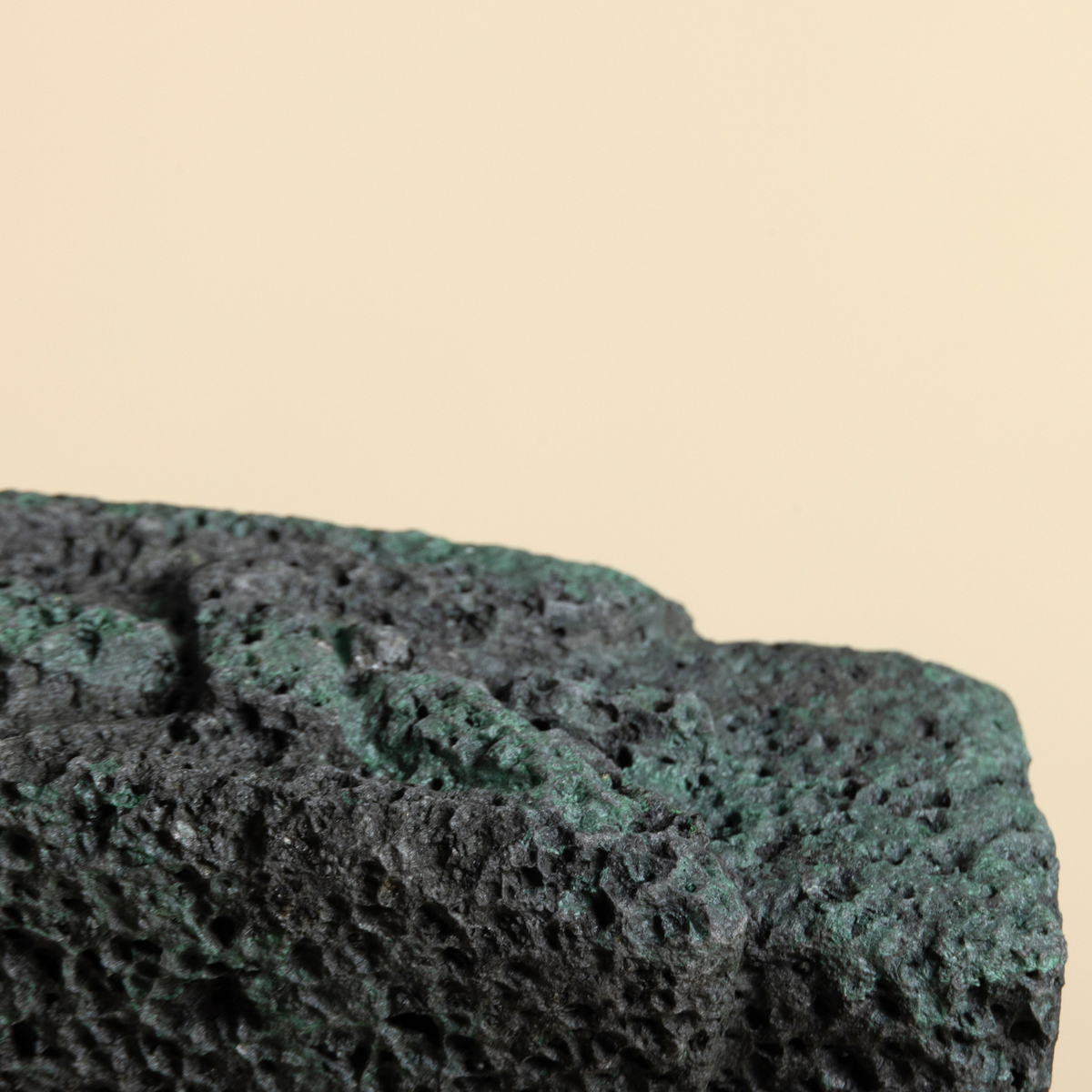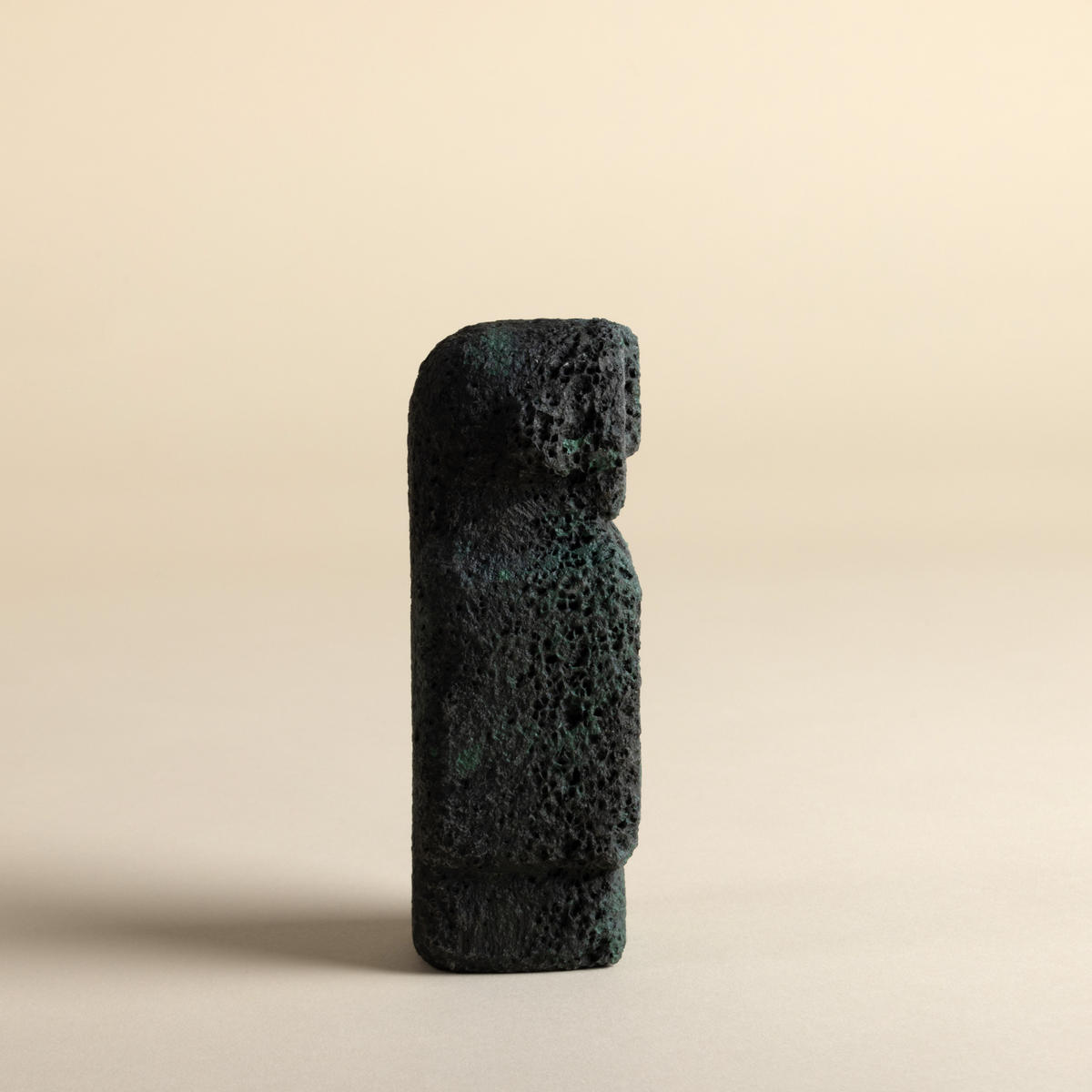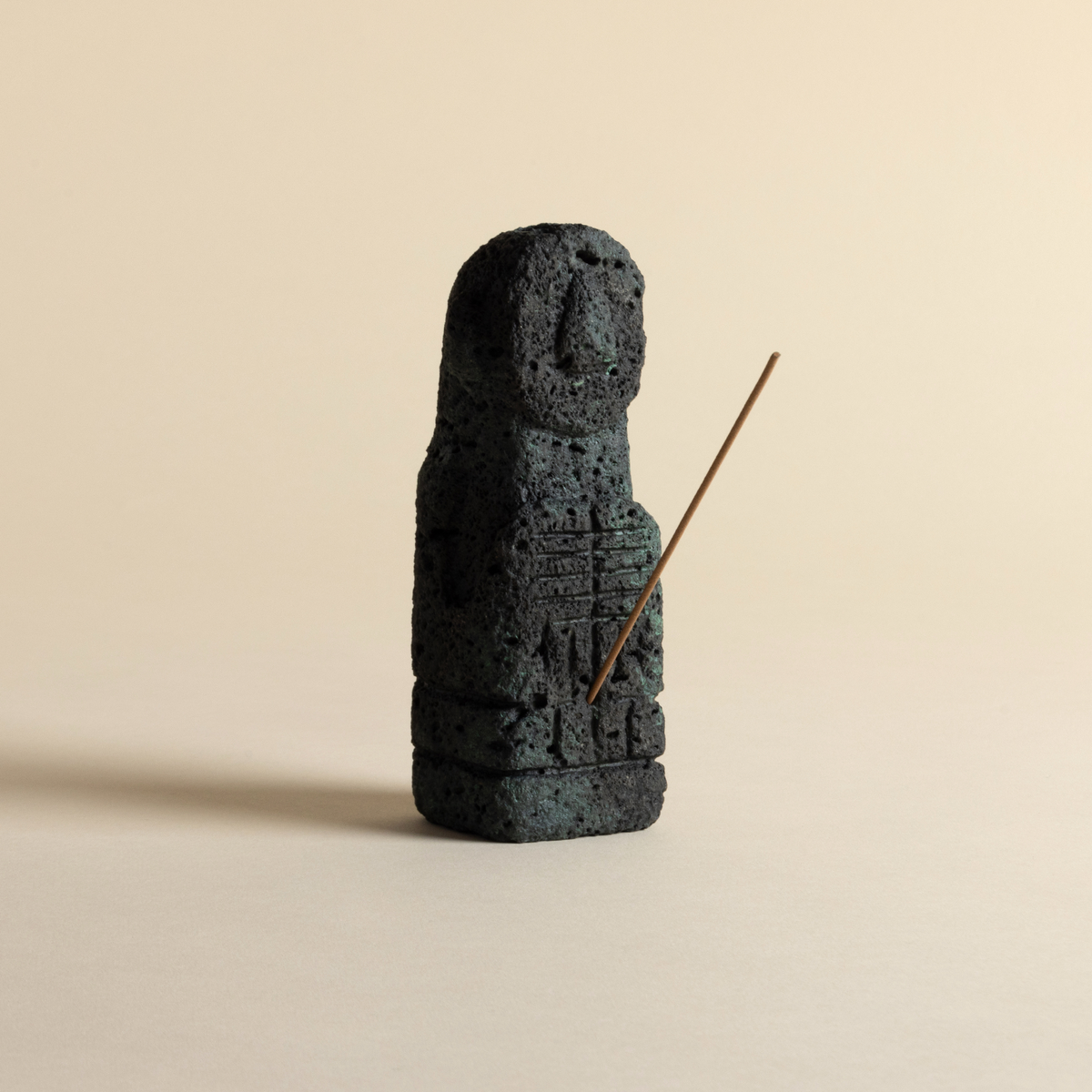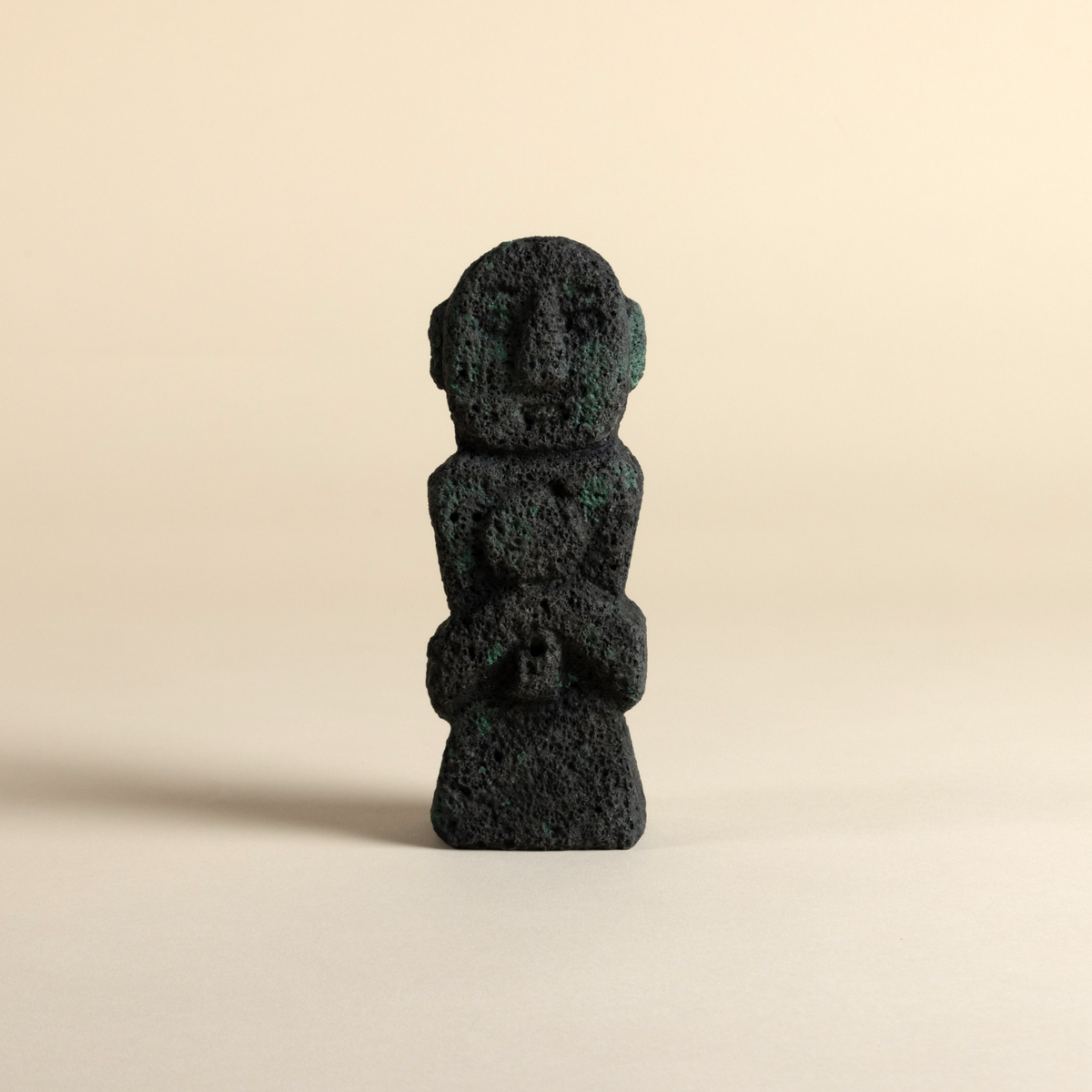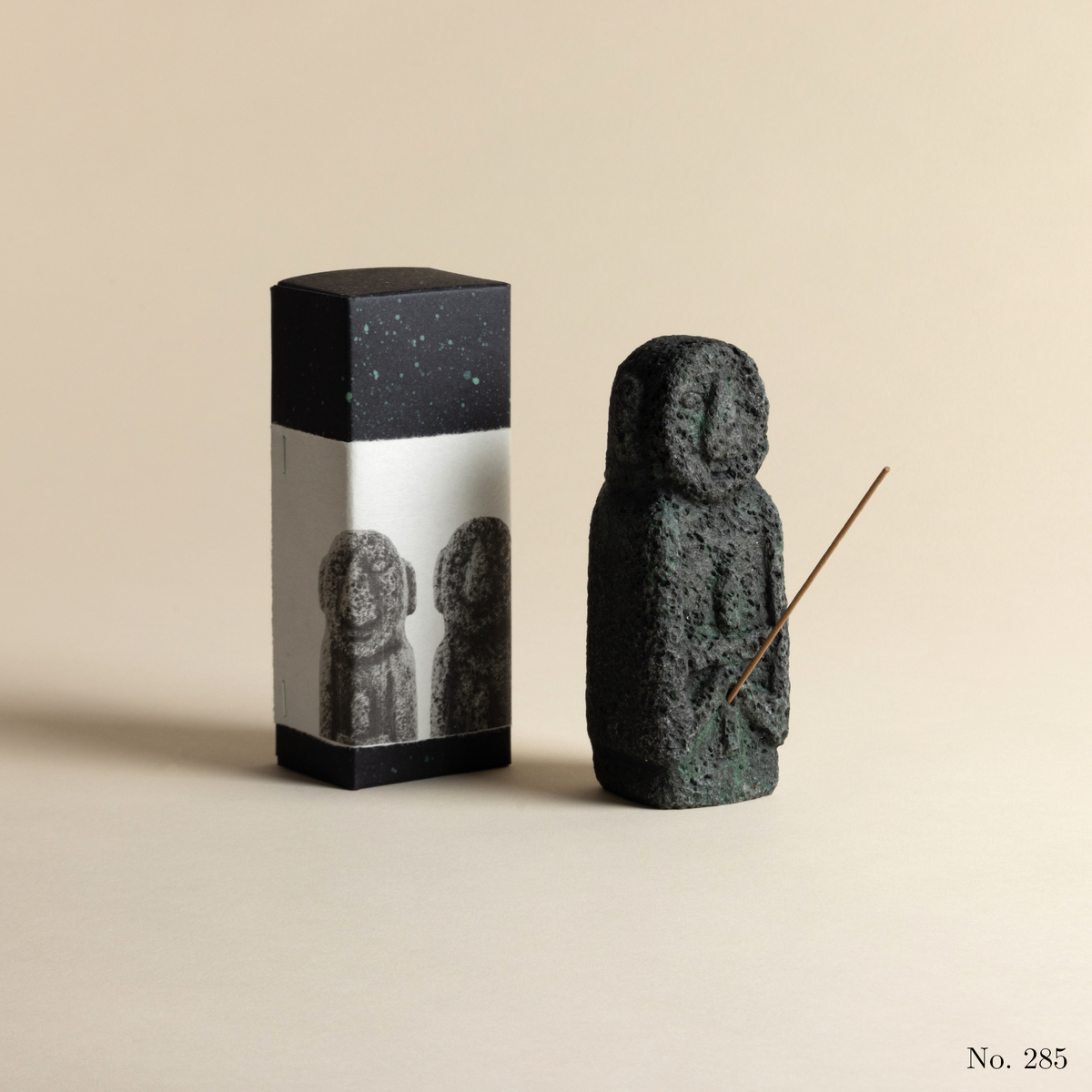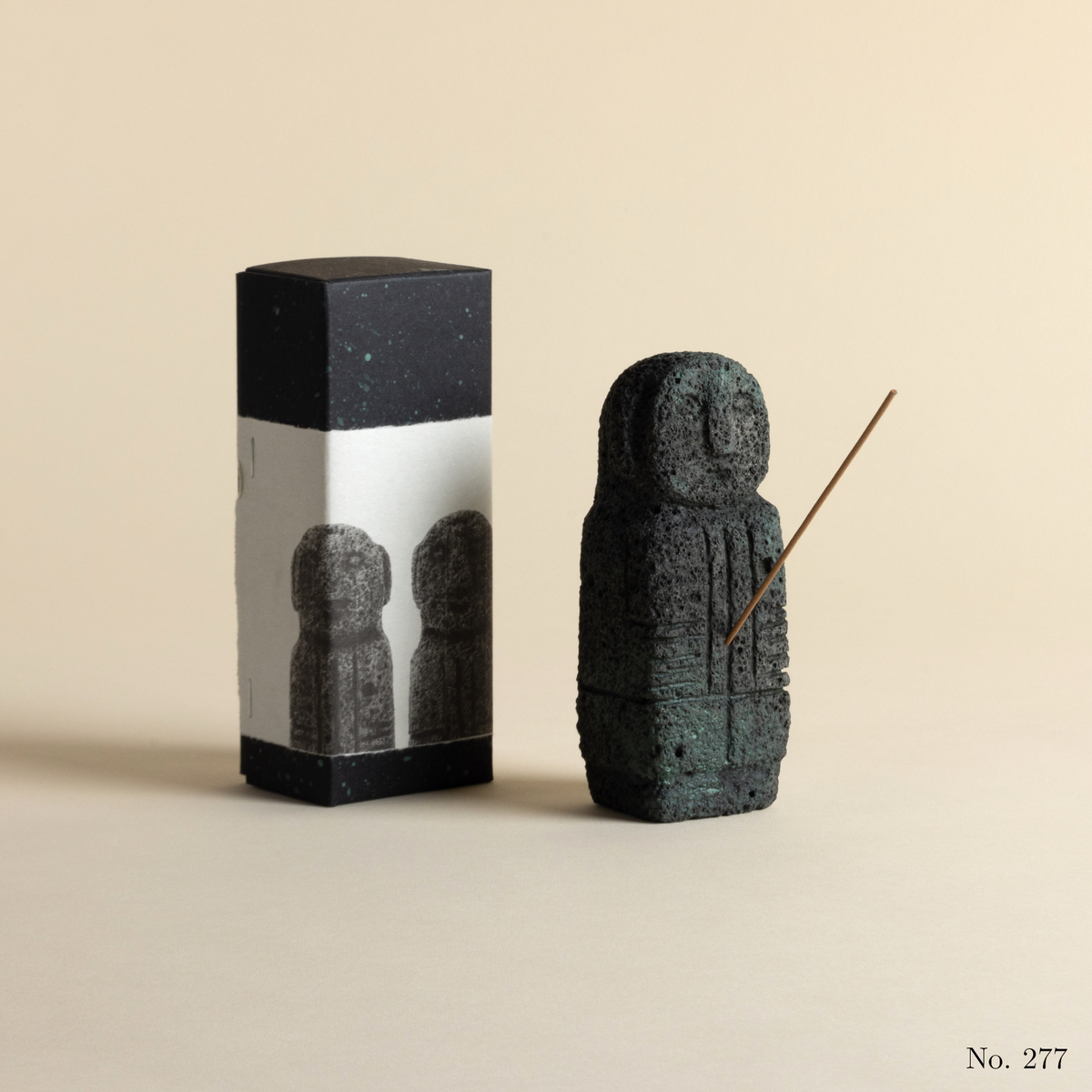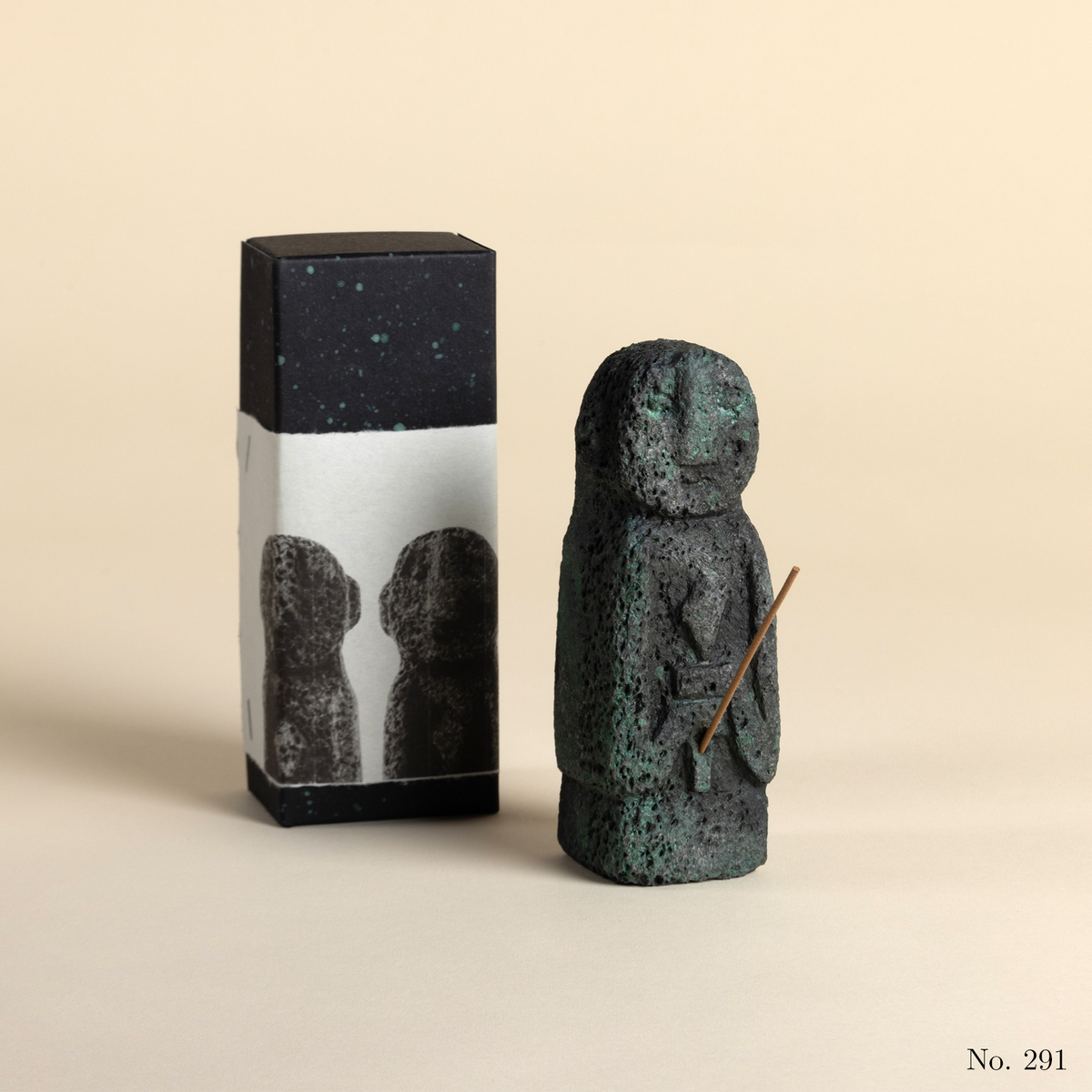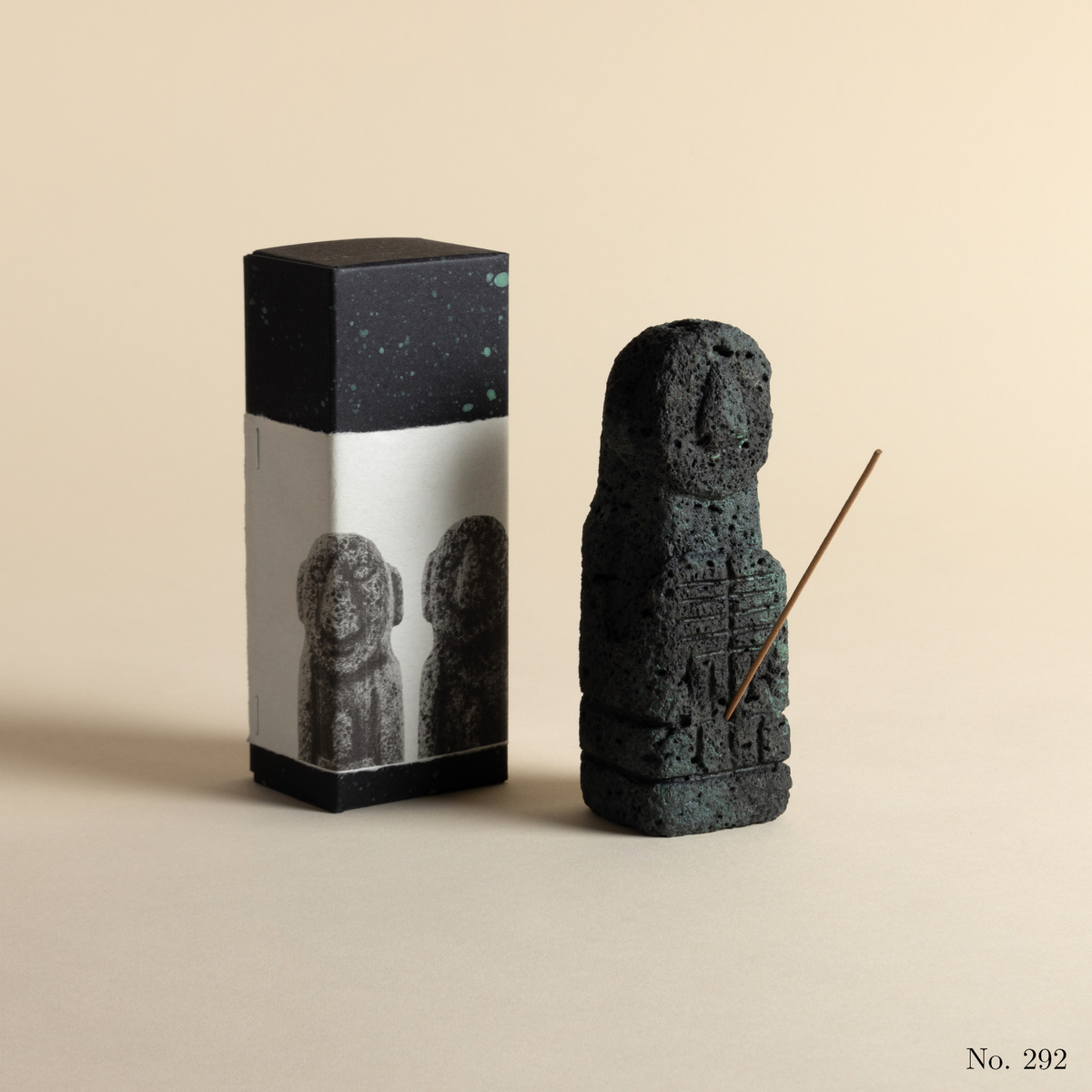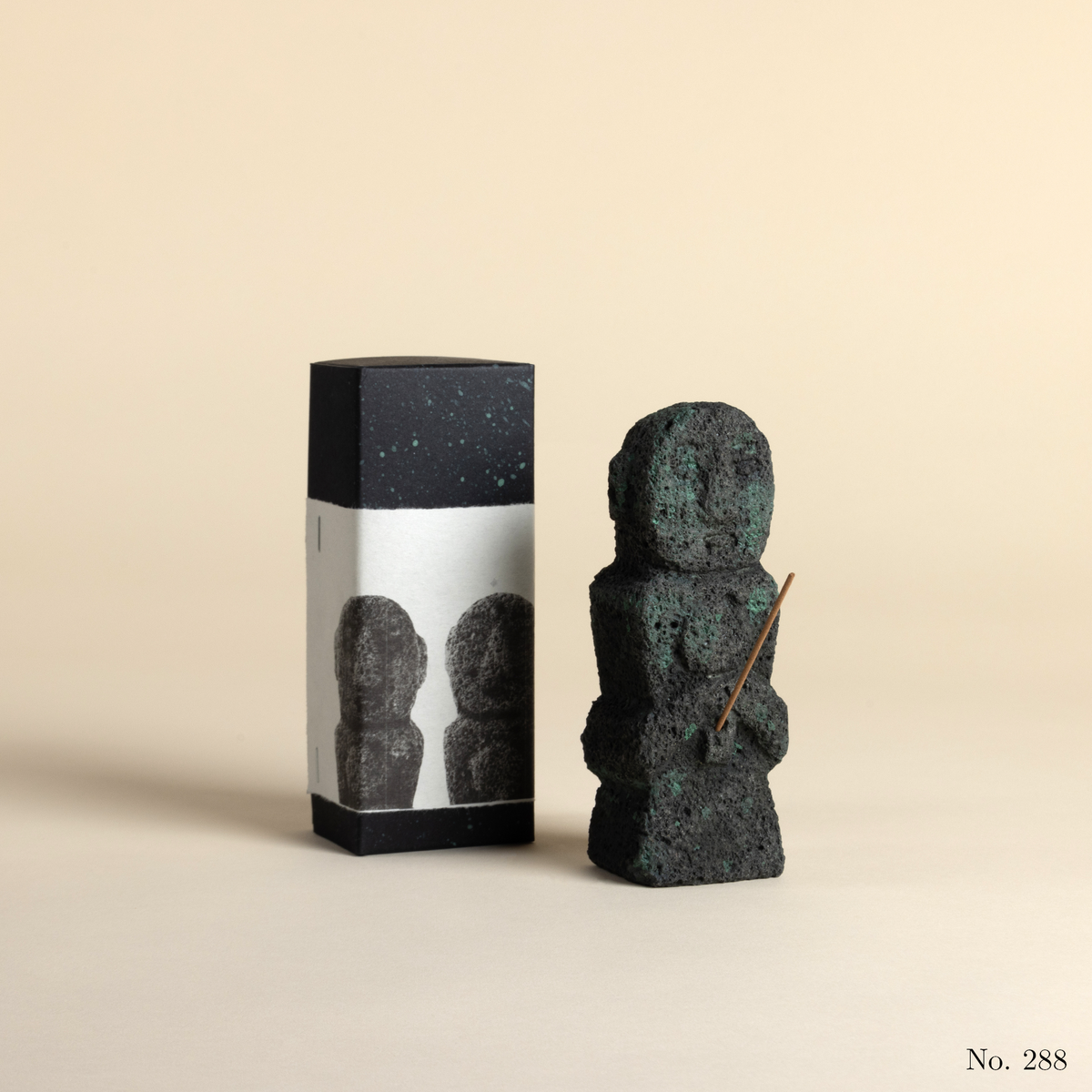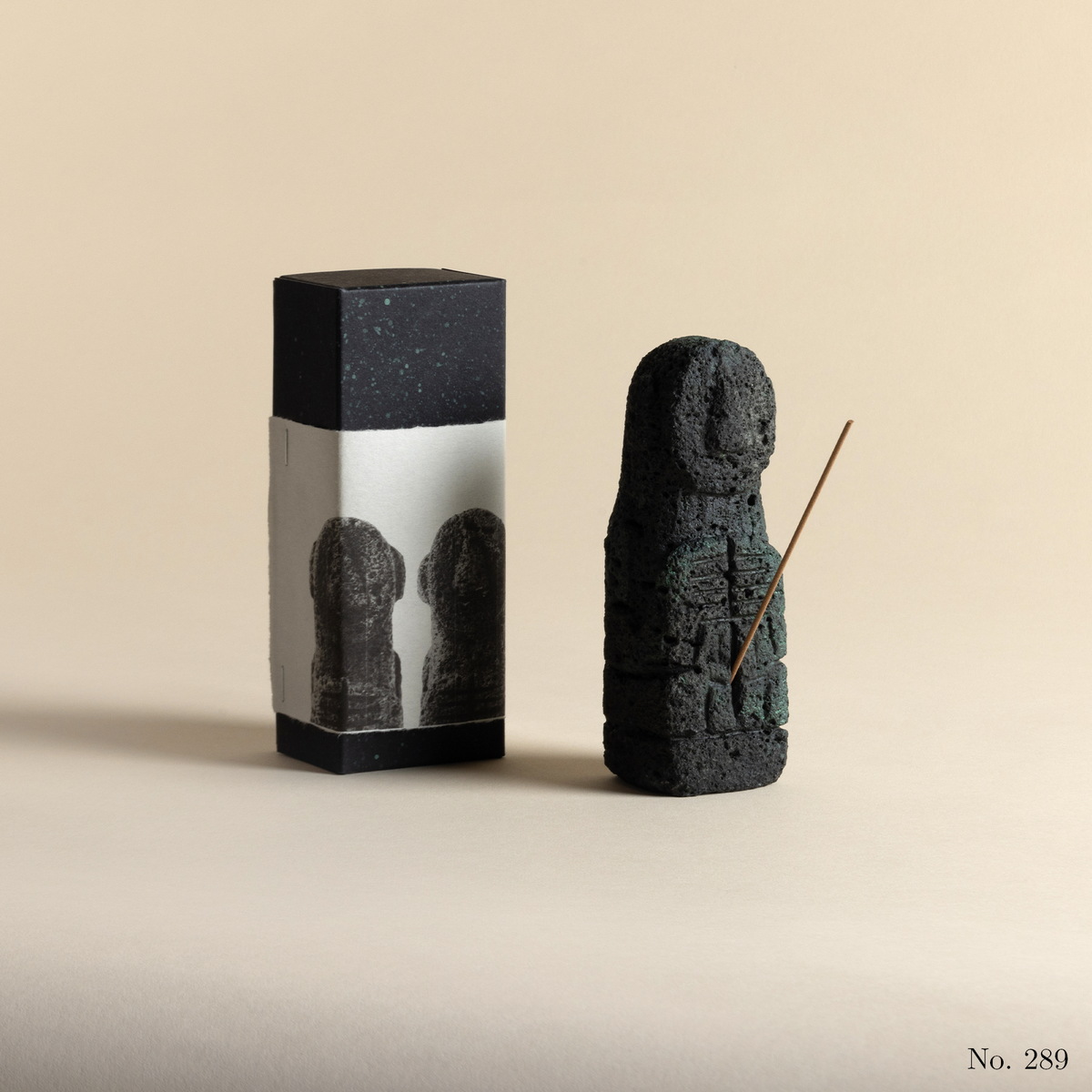Dongjaseok Stone Incense Holder
Originating in the 17th century and used to the mid 20th century, these one-of-a-kind incense holders originate from the South Korean island of Jeju. The statues are hand carved from basalt, the island's volcanic rock, making each figure unique.
The Dongjaseok is a part of the island's native burial ceremonies. Reserved for aristocrats and members of the royal family, they are a stone representation of the Buddhist child monks that would assist a person with their daily tasks–such as holding their cigarettes, lanterns, and other personal needs–during their lifetime. Believing that the person who had passed would need assistance in the afterlife, descendants would place these statues in pairs next to their loved ones' graves as guardians. Dongjaseoks provided caring companionship for the deceased while simultaneously creating an eternal bridge of connection to those still living. The raw beauty of a Dongjaseok speaks to the cultural importance of love and continued dedication felt by those who practiced this tradition.
There are only 250 Dongjaseoks remaining on Jeju island. Honoring the native significance of the figures, these statues are numbered starting at No.251.
While traditionally used in pairs, these Dongjaseoks are available individually.
